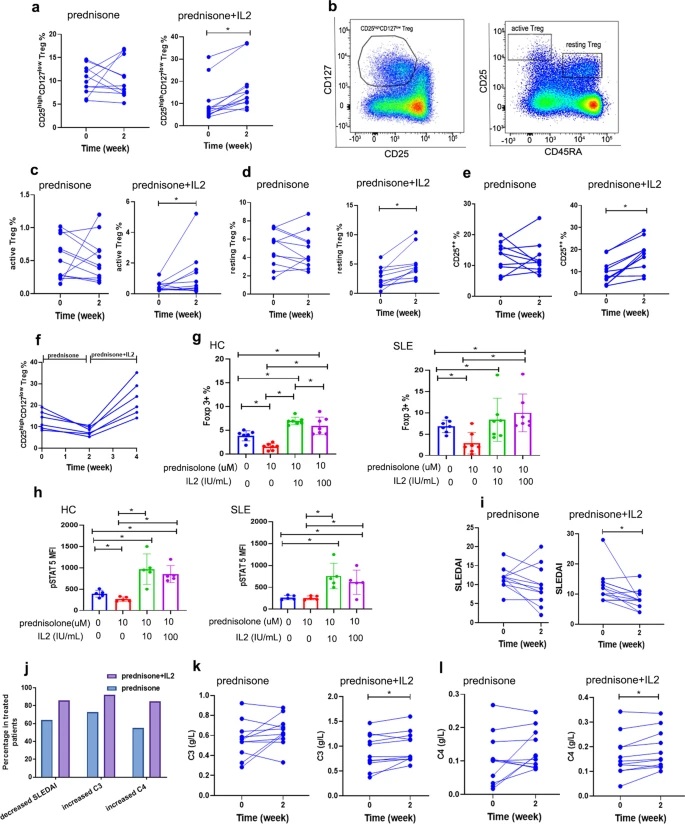Rheumatology and Immunology | Rheumatology and Immunology Team of Peking University People’s Hospital Unveils Higher Treatment Efficacy of Low-Dose IL-2 for SLE
风湿免疫团队关于促进系统性红斑狼疮病情改善研究成果在权威期刊发表
2023-09-11
In a significant development, the Rheumatology and Immunology team at Peking University People's Hospital (PKUPH) has unveiled groundbreaking research aimed at improving the treatment of systemic lupus erythematosus (SLE). The study, titled "Low-dose IL-2 Mitigates Glucocorticoid-Induced Treg Impairment and Promotes Improvement of SLE", has been published in the esteemed online journal Signal Transduction and Targeted Therapy.
The research sheds light on the use of low-dose interleukin-2 (IL-2) to enhance the effectiveness of glucocorticoid treatment, a common approach to address immune imbalances in SLE patients. According to the findings, glucocorticoids (GC) adversely affect the quantity and function of regulatory T cells (Treg) by inhibiting IL-2 signaling. The introduction of low-dose IL-2 during hormone therapy proves to be a promising strategy to sustain IL-2 pathway activity, safeguard Treg, and consequently facilitate the improvement of SLE during glucocorticoid treatment.

Systemic lupus
erythematosus (SLE) patients experience immune imbalance, characterized by the
excessive activation of pathogenic effector T and B cells and compromised
regulatory T cells (Treg) with suppressive functions. This imbalance leads to
the production of numerous pro-inflammatory cytokines and autoantibodies,
resulting in damage to multiple organs and tissues. While glucocorticoids (GC)
play a crucial role in suppressing the overactivation of T and B cells, their
impact on Treg function has been a topic of debate. The research emphasizes the
importance of comprehensive investigations the changes in Treg and their
molecular mechanisms post-GC treatment in SLE patients to enhance clinical GC
therapy.
Zhou Haotian, a doctoral
student at Peking University People's Hospital, and Zhao Xiaozhen from Rheumatology
and Immunology Department of Beijing Children's Hospital, are the co-first
authors of the paper. Professor Li Zhanguo and Researcher Sun Xiaolin from the Rheumatology
and Immunology Department of PKUPH are the
co-corresponding authors. The study received support from the National Natural
Science Foundation and various other sources.
Paper Link: http://www.nature.com/articles/s41392-023-01350-6

